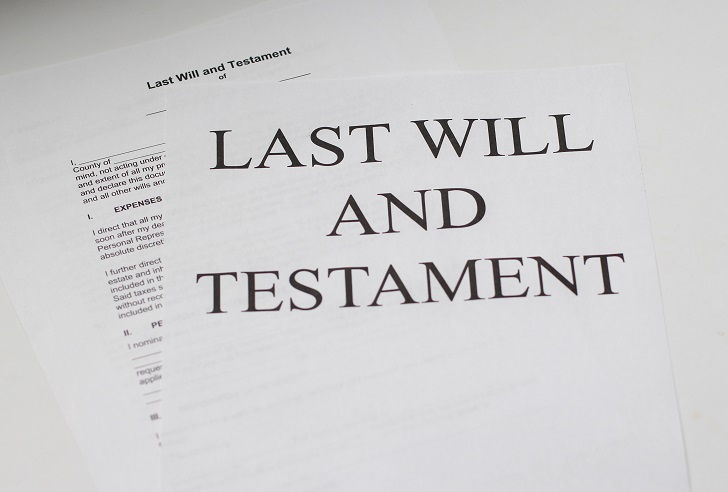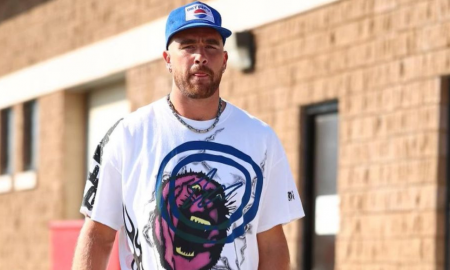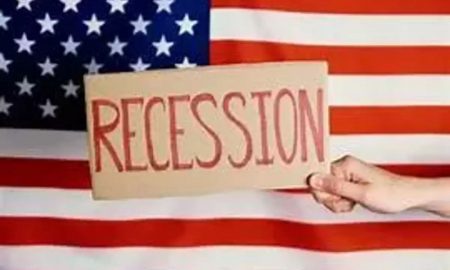
Things to Know About Estate Planning and How You Can Set One Up While Social Distancing

Amid the coronavirus pandemic, people are now anxious about what may happen to them in the future. During an uncertain time like this health crisis, it’s more important than ever to have an estate plan just in case.
According to Samantha Weyrauch Davis, a CPA lawyer at the national law firm, Hall Estill, they are now getting more calls from people who are concerned that they may get exposed to the COVID-19 virus; especially those in the medical field.
However, Weyrauch Davis says that you don’t have to be a doctor or a frontliner to start working on it. Everyone needs estate planning. It’s just that estate plans are being highlighted more nowadays due to the risks during the public health crisis.
Although estate planning professionals recommend those over 18 years old to have a complete set of estate planning documents, some are more crucial for young adults compared to others.

Experts recommend starting an estate plan by the age of 18
Basic Estate Planning for Adults
By the time you turn 18, you should plan for possible incapacity. Designate someone to make health care decisions on your behalf and state what you want to happen in a specific situation.
Parents may or may not have the authority to make legal decisions once their child turns 18, so Sherri Stinson, an estate planning and guardianship attorney recommends coming up with a plan for healthcare. Part of this plan is a health care power of attorney, which lets you authorize a person to make health care decisions for you if you are unable to do so. A living will or medical directive, which outlines what you want to happen when you are terminally ill, in an end-stage condition, or in a vegetative state.
You may also want to throw in a HIPAA authorization form, which permits medical providers to share your medical information to people you designate. Although it is included in the power of attorney in some states, it might not go into effect unless you are considered incapacitated.
What You Need Once You Already Have Assets or Dependents
Having a full estate plan is a smart move when you already have a spouse or partner, kids, or assets that would need to be distributed upon your death. A full estate plan means you have a will or trust, a living will or medical directive, healthcare power of attorney, durable financial power of attorney, and HIPAA authorization.
Through a will, you can designate how your assets should be divided. If you have minor children, you can also assign who would stand as their guardian if you pass away. If you don’t have a will, the state has to make these decisions.
A trust is somewhat similar to a will. However, the assets won’t have to go through a probate court when you die. Trusts can also manage assets like a life insurance policy that you’ll leave for your minor children. It’s more expensive, though, so it’s better off for complicated situations.
One other thing to take note is that the person you name in your power of attorney should be up for the responsibility. Stinson says that you should name 2 other people as a back-up if the 1st person declines or passes away. This way, the document won’t fail.

You may have to complete your estate plan documents once you have dependents.
Estate Planning Amid the Pandemic
Many businesses had to close their offices temporarily due to the pandemic, and that includes estate planning attorneys. Because of social distancing, it’s difficult to put together properly signed, witnessed, and notarized documents for your estate plan during this time. Weyrauch Davis says that it’s possible to work up documents remotely, but the signing part is a challenge because it must be done in person.
Some states have adjusted their requirements to make things easier. New York, Iowa, Connecticut, and New Hampshire now allow online notarization. Patrick Hicks, who works as the head of legal for online estate planning firm Trust & Will, recommends this approach: make a Zoom call, have a notary watch you sign the document, and scan and send it to the notary to have it stamped.
Estate planning professionals are also trying to ease the process. Weyrauch Davis schedules appointments with clients and lets them come to her house for the signing. They make sure to practice social distancing and other hygiene measures like having little plastic bags filled with sanitizer and providing a pen for each person who has to sign. If you have an uncomplicated situation, you may consider availing an online estate planning service.
Just make sure to choose one that offers real legal advice. However, complicated cases like having a sticky family situation, sizeable assets, a loved one with special needs, or a business may require you to consult an estate planning attorney.

You can have your document notarized online in some U.S. states
Storing the Documents
Your documents should have at least two copies. One should be with your attorney, while the other must be kept in a safe place inside your home like a waterproof or fireproof case. You should also inform a trusted person where you placed the documents. It won’t be of help if no one could find it.
More in Business & Finance
-
`
Curious About Travis Kelce’s Net Worth? Here’s the Scoop!
Travis Kelce’s name echoes through NFL stadiums, synonymous with athletic prowess and electrifying plays. But beyond his touchdown celebrations and record-breaking...
June 10, 2024 -
`
Everything You Need to Know About an Assumable Mortgage
What is an Assumable Mortgage? Whether you are a buyer or a seller, understanding the concept of assumable mortgages can open...
June 6, 2024 -
`
Layoff vs. Fired – Understanding the Crucial Differences
When it comes to job loss, understanding the distinction between being layoff vs. fired is crucial. While both situations result in...
May 30, 2024 -
`
When Are Business Taxes Due 2024? Essential Dates and Deadlines
Tax deadlines can be daunting, but fear not! Let’s break down everything you need to know to stay on top of...
May 22, 2024 -
`
How Much Does Jeff Bezos Make Per Hour? It’s More Than You Think!
Jeff Bezos, a name synonymous with innovation and wealth, stands as one of the world’s richest individuals. While Bernard Arnault and...
May 16, 2024 -
`
What is Portfolio Investment Entity (PIE) and How Can it Benefit You?
In the intricate world of finance, individuals seek avenues to optimize their investments while minimizing risks. One such avenue gaining traction...
May 9, 2024 -
`
What is a Bank Statement? Understanding its Definitions, Benefits, and Prerequisites
Ever wondered where your money goes? A bank statement is like a financial report card, giving you a clear picture of...
April 30, 2024 -
`
Branded Content: A Genuine Way to Connect With Your Audience
Have you ever binge-watched a series on Netflix, only to later realize that the beverage everyone’s sipping on is that brand...
April 23, 2024 -
`
What Car Does Jeff Bezos Drive? Find Out Inside His Exclusive $20 Million Collection
Have you ever wondered what car does Jeff Bezos drive? This man’s tastes in vehicles are as expansive as his business...
April 17, 2024















You must be logged in to post a comment Login